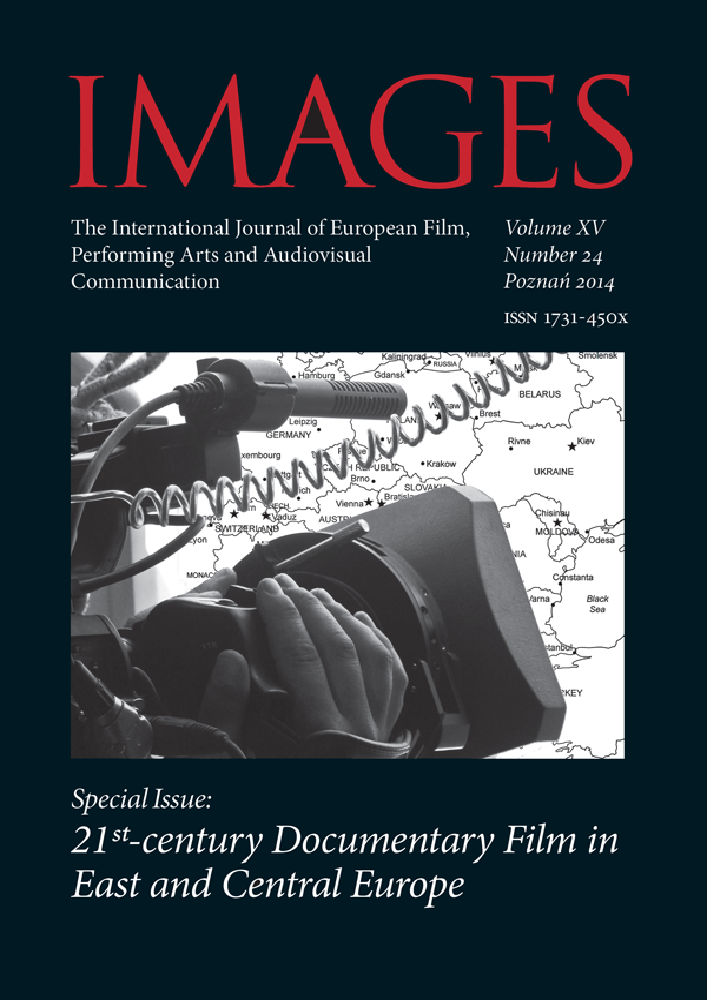Abstrakt
The film is one of few examples of political documentaries produced in Poland after 1989. It is not limited to merely outlining the political argument over General Jaruzelski’s decision to impose martial law. Although it concerns events in Polish history, it is not a historical documentary, as it brings forth present-day political conflicts that have arisen around historical events. Trying to reconstruct this current political argument, Zmarz-Koczanowicz reaches for a method developed in the 1970s by the so-called “Kraków School” led by Krzysztof Kieślowski. ^e “talking heads” method was meant to help documentary filmmakers in the Polish People’s Republic reach what the person in the street actually thought and avoid the distortions of propaganda. For Kieślowski, however, the overriding aim was conciliation and an attempt to understand both sides of the political barricade - the authorities and the vox popu- li. His attitude, according to the terminology suggested by Chantal Mouffe, was a post-political one striving for an agreement through a rational dialogue. Zmarz-Koczanowicz’s aim, however, is different: she is intent on showing a clash of different hegemonies that do not strive for consensus. Their agonistic argument, played out in the political register, rather than a moral one, is a guarantee, according to this Belgian philosopher of politics, that democracy will continue to exist.
Bibliografia
A. Michalak, “Przełom w polskim dokumencie– program artystyczny ‘szkoły krakowskiej’ w kontekście przemian kulturowych i politycznych lat 1968–1971” [A Watershed in the Polish Film Documentary. The Programme of the Kraków School in the Context of Cultural and Political Transformation, 1968–1971], in: Kino polskie: reinterpretacje. Historia, ideologia, polityka, eds. K. Klejsa, E. Nurczyńska--Fidelska, Rabid, Kraków 2008, p. 440.
M. Jazdon, Dokumenty Kieślowskiego [Kieślowski’s Documentaries], Wydawnictwo Poznańskie, Poznań 2002, p. 61.
T. Sobolewski, “Spokój i bunt. Uwagi o twórczości Krzysztofa Kieślowskiego” [Peace and Rebellion. On the Work of Krzysztof Kieślowski], in: Kino polskie w trzynastu sekwencjach, ed. E. Nurczyńska-Fidelska, Rabid, Kraków 2005, p. 130.
T. Sobolewski, “Troska ostateczna. Uwagi o społecznym kontekście kina Krzysztofa Kieślowskiego” [The Ultimate Nod. The Social Context of Kieślowski’s Film’s], in: Kino Krzysztofa Kieślowskiego, ed. T. Lubelski, Universitas, Kraków 1997, p. 111.
S. Zawiśliński, Kieślowski. Życie po życiu. Pamięć [Kieślowski – A Life Aft er Life], Skorpion, Warszawa 2007, p. 73.
C. Mouffe, Polityczność [original: On the Political, Routledge, 2005, p. 1], trans. J. Erbel, introd. P. Gdula, Wydawnictwo Krytyki Politycznej, Warszawa 2008, pp. 16–17.
The Magic Mountain. American Portrait of Czesław Miłosz (Czarodziejska góra. Amerykański portret Czesława Miłosza, 2000.
The Professor. About Leszek Kołakowski. (Profesor. O Leszku Kołakowskim, 2005).
J. Majmurek, A. Wiśniewska, “Wstęp. Dokumenty polityki” [Introduction. Documents of Politics], in: Polskie kino dokumentalne 1989–2009…, p. 7.
M. Jazdon, “Zabezpieczanie śladów. O filmach Marii Zmarz-Koczanowicz” [Securing the Slides. The Films of Maria Zmarz-Koczanowicz, in: Klucze do rzeczywistości. Szkice i rozmowy o polskim filmie dokumentalnym po roku 1989, ed. M. Hendrykowska, Wydawnictwo Naukowe UAM, Poznań 2005, p. 131.
A. Rychard, “Rozproszona Polska. Wstępna próba bilansu socjologicznego” [A Poland Fragmented. An Initial Attempt at a Sociological Balance], in: Polska. Jedna czy wiele?, eds. H. Domański, A. Rychard, P. Śpiewak, Trio, Warszawa 2005, p. 112.
Ł. Maciejewski, “Uśmiech cudzysłowu” [The Smile of a QuotationMark], Tygodnik Powszechny 2008, no. 23, http://tygodnik.onet.pl/kultura/usmiech-cudzyslowu/8jgdn [accessed: November 15th 2013].
Maria Zmarz-Koczanowicz says, in: Ł. Maciejewski Przygoda myśli. Rozmowy obok filmu [The Adrenalin of Theory. A Discussion Around Cinema], Trio, Warszawa 2009, p. 164.
Licencja
Copyright
© 2014 Uniwersytet im. Adama Mickiewicza w Poznaniu
OPEN ACCESS
